- Home
- William Bell
Only in the Movies
Only in the Movies Read online
Also by
WILLIAM BELL
Crabbe
Absolutely Invincible
Death Wind
Five Days of the Ghost
Forbidden City
No Signature
Speak to the Earth
Zack
Stones
Alma
Just Some Stuff I Wrote
The Blue Helmet
WITH TING-XING YE
Throwaway Daughter
For Seamus
“But if there is real love, of the sort that one doesn’t go around telling everyone about, the sort that is felt and lived …”
“You’re a changed man, Fermín.”
“I am. Bernarda has made me want to be a better man.”
“How’s that?”
“So that I can deserve her.”
—Carlos Ruiz Zafón, The Shadow of the Wind
PROLOGUE
“HEY, MISTER! Your smoke machine’s broken.”
The tall man in the orange parka spun around and gave me a look that could have shattered a mirror. He held a clipboard with a stopwatch pinned under the clasp.
“You’re not supposed to be here,” he snapped.
“And it’s in the wrong place,” I added helpfully, pointing. “It should be on the other side of the battlefield. The wind—”
“Go away,” Orange Parka demanded. “We’re trying to shoot.”
“This is a public park. I have a right—”
“It’s not public as long as we’re here. It’s a closed set. Now go and sit over there and I’ll let you watch, ’kay?”
He waved toward the steep grassy rise that formed the eastern barrier of 11th Street Park. I climbed the bank and sat down. From there I had a great view of the whole lakefront and the crowd of people, some wearing outlandish costumes, others decked out in designer T-shirts and jeans, milling around and shouting at one another as they consulted their notepads or binders. Beside the lake a shapeless contraption huffed and wheezed and thumped, burping out puffs of black smudge that broke apart in the breeze and drifted out over the water. After a few minutes, two burly men hefted the ailing machine away from the shore and put it down where the wind would push the smoke in the right direction.
I leaned back, ankles crossed, and waited for the show to begin.
This is what I saw.
A cannon blast thundered like a sledgehammer on stone. Musket fire crackled in the smoky air. Striving to keep their footing on a barricade of rubble, overturned wagons, smashed carts and dead horses, Gascon musketeers—their long guns useless in close combat—desperately wielded their swords, holding off a howling swarm of black-clad Spaniards. Men bellowed and cursed. A trumpet blared. Drums rolled. The cannon roared again.
In the midst of the brawl, his plumed, broad-brimmed hat at a jaunty angle, one musketeer stood out, furiously thrusting and parrying. “Courage! Don’t give up, men! I have two deaths to avenge, Christian’s and my own!” he hollered from the barricade.
The long white feather in his hat dipped and swayed as he fought, and sunlight danced on the edge of his blade. He feinted, then drove forward, plunging his weapon into a Spaniard’s chest, yanking it free as the man fell—and pushed on again.
Then a snarling Spaniard swung his halberd in a vicious arc, narrowly missing the musketeer’s head and knocking his hat to the trampled ground. The musketeer retaliated immediately. Dashing at the Spaniard with a triumphant shout, his free hand arched behind him like a scorpion’s tail, his rapier a blur, the musketeer lunged. But he tripped on his hat and crashed awkwardly against his enemy with such force that the Spaniard’s halberd sprang into the air. As the two warriors collapsed in a heap and rolled off the barricade, the halberd dropped with a whack! onto the musketeer’s head.
“Ow! Dammit!” the hero screamed. He scrambled to his feet. Mud smeared his cheeks, his moustache had disappeared, his goatee hung off the end of his chin like a ragged bit of moss. He threw his rapier to the ground. “Harry, you idiot!”
“It wasn’t my fault!” the Spaniard protested from his hands and knees. “You fell into me.”
“Cut! Cut!” a female voice hollered. “Winston, you clumsy lout! That’s the second time today!”
A lanky blonde woman, her baseball cap turned backwards on her head, leapt from her lawn chair, knocking it over. “You bloody fool! Do you realize how long it will take us to set up this scene again?” Flinging a notebook to the ground, she stomped over the dolly rails toward the embarrassed warriors. “We’re going to lose the light!” she screamed, pointing at the sky.
Around the disgraced swordsman, who stood awkwardly rubbing the back of his head, the musketeers and Spaniards turned toward the shrieking interloper and lowered their weapons. Behind her, the stationary-camera man fiddled with his equipment. The dolly camera drew to a halt alongside the barricade, its operator shaking his head in frustration. Then a herd of men and women clutching clipboards and water bottles invaded the battleground, their upmarket casual rags out of place among the dusty uniforms from another era. As manufactured smoke dispersed over the lake, and the soldiers began to chat among themselves, the director and the hero squared off in boisterous conflict—verbal this time, and very personal.
I hung around for hours afterward. Although the shoot had ended badly for the movie people, everything about it fascinated me—the energy created by dozens of people busily contributing to the group objective, the technical details of cameras, lights and sound equipment, and the creation of another era in front of the cameras. For me, Winston’s comical blunder didn’t change any of that. And I was amazed that my imagination could operate on so many levels at once. As I watched the actors and the director packing up and drifting away toward their cars, the technicians dismantling their gear and snapping the clasps on odd-shaped cases, I imagined, as in a movie scene flickering on a screen inside my mind, a cavalier standing on a sunlit, cobbled street, sweeping his plumed hat from his head and bowing deeply as an elegant woman glided past, the trail of her gown whispering on the stones. In another scene I pictured myself as a fencing master, crossing sabres with a masked villain, beating him backwards thrust by thrust as admirers oohed and aahed from the sidelines and a beautiful wide-eyed girl with hair the colour of honey clutched a rose to her breast, breathless with fear for my safety.
By the time darkness had begun to fall, the moviemakers were long gone and a couple of security guards had taken up residence in the little trailer parked some distance from the shore. Before I set off for home I had decided two things.
I would skip school the next day and come back to the park.
And someday, somehow, I was going to make movies.
ACT ONE
CHAPTER ONE
I WAS TWELVE YEARS OLD when I stumbled onto the movie set in the park on 11th Street, and I couldn’t get the spectacle I had witnessed out of my head. It was like Christmas morning. What present should I open first? Acting? Directing? Operating cameras, booms, sound equipment? Creating the story? I began to pay more attention to the movies I watched on TV. I took a few cinema-history books out of the library at the top of our street. I kept my eye out for some of the movies mentioned in the books—Citizen Kane, The Umbrellas of Cherbourg, Casablanca, Red Sorghum. By the time I was nearing the end of grade ten and the school guidance types were nagging us to choose what they called a “career path,” I already knew what I wanted to do with my life.
There was only one problem—or, to be exact, two.
My parents.
My sister, Janine, was ten years older than me—I was “mommy’s little surprise”—and had proved she carried the Blanchard business genes when she signed up for accountancy at university as a first step toward business
administration and a career as a stockbroker. She planned to amass her first million before she was thirty. I told her that unless she stopped taking courses, she’d still be in college when she was thirty. She tossed her auburn hair, planted her skinny hands on her skinny hips and told me to shut up. Besides, she added, she didn’t care if she made a million. Playing with money, especially other peoples’, was fun.
My mother, a tiny, slender woman with a limitless supply of energy, operated a hairdressing business out of our basement. The grey-haired ladies who tottered in and out our side door were a reliable indicator that Maryan’s Custom Styling wasn’t going to put the gleaming salons on Lakeshore Boulevard out of business. But Mom liked her “old dears.” They made few demands, and although they wouldn’t tolerate high prices, they always paid in cash. Our basement was like a small social club where the members came one at a time and swam around for half an hour in chemical smells and gossip.
As the hand-painted sign on the side of his blue panel van announced, my father was Cyrus’s Custom Cabinets and Carpentry, Cyrus Blanchard, sole prop. It was unusual to find a tradesman who could build a house working from nothing but a sketch on a piece of paper and then design and craft complex cupboards and cabinets with fine scrollwork and drawers that still rolled freely ten years after they were installed. I had always believed that cabinetry was Dad’s true calling, but it was the less refined work that paid the bills. Dad hired workers when he needed them and paid above scale. He resisted the pressure to expand and make more money. He said the quality of his work would drop. Besides, he didn’t need the aggravation. “Keep it simple” was his motto.
One of the people who helped him was me. I went out on the job with him on weekends and holidays. For the first years I guess I mostly got in his way. When I was ten, he gave me my own leather nail bag to hang around my waist, just like the one he wore but smaller. Better still, he put me on the payroll at a dollar an hour. By the time I was twelve, I knew how to frame a room, shingle a roof and plumb a wall. He made me learn how to lay out a roof truss—which required a few geometry lessons—even though most contractors ordered them prefabricated from the builders’ supply. “Anybody can make a phone call,” he’d say. “A builder builds.”
During the summer following my graduation from 7th Street Elementary School, he offered to give me a project to complete on my own. The reward would be half union-scale pay. When I agreed to take on the challenge, he handed me a drawing of a garden shed and gave me two weeks to build it in our yard. I had to calculate the materials list, submit an estimate, arrange for the materials to be delivered, then construct the shed. It was like a simplified, miniature house.
I passed the test, raising a structure exactly according to his drawing, except I added a window on each side wall to let in light and a gable vent on the rear wall. He inspected it carefully, tapping the studs and door frame with his knuckles and muttering. I was a little puffed up with my custom additions, but he just nodded when he saw my changes and said, “Fine.”
“‘Fine’?” I replied. “That’s it? ‘Fine’?”
“The windows and vent were left out of the plan on purpose,” he said with irritating nonchalance, scratching his prematurely balding head. “It was part of the test.”
He taught me some of the cabinetmaking part of his limitless fund of wood-knowledge, encouraging me to think differently, find alternate ways of doing things, learn the personality of each kind of wood. It always amazed me that someone built like him, with a square body, strong, thick arms and hands like baseball gloves, could produce such delicate work. Framing was done mostly with spruce, but cabinets could be pine, oak, walnut, cherry—whatever the customer wanted. I was in grade nine when I made my first cabinet from scratch—a simple corner unit with full-length doors, in cherry wood.
All this time, I kept my desire to work in movies to myself. I knew the day was coming when I’d have to tell my parents the truth, admit that I wanted to break out of the Blanchard business trust and make my career in, of all things, the arts. Then one day I came home from school and saw my father’s panel van parked in the driveway of our house on 11th Street, under the maple tree.
There was something different about it. I took a closer look.
“Oh, no,” I said.
SCREENPLAY: “JAKE, THE UNGRATEFUL SON”
by
JAKE BLANCHARD
FADE IN:
EXT. THE STREET OUTSIDE THE BLANCHARD HOME—DAY—APRIL
JAKE tears into his driveway on his bike, skidding to a stop beside his father’s van. Does a double take. Peers at the writing on the side panel.
CLOSE UP:
The side panel of the van, showing first line of print:
CYRUS’S CUSTOM CABINETS AND CARPENTRY
ZOOM IN TO second line of print:
CYRUS BLANCHARD and SON, PROP.
ZOOM TIGHTER to words:
and SON
CUE MUSIC: the first few bars of Beethoven’s Fifth Symphony
CUT TO:
INT. THE BLANCHARD HOME—DAY
Following JAKE as he drops his backpack inside the front door, walks down the hall and turns into the living room. MARYAN is sitting on the floor, photos spread on the carpet around her.
CLOSE UP:
Various photos: Jake as a baby, as a toddler mounting a tricycle, at his elementary-school graduation; more recent shots of Jake and Cyrus at a construction site, wearing their leather nail aprons. MARYAN looks up at JAKE, her face a mask of grief.
MARYAN
Oh, Jake! How could you?
CUT TO:
EXT. BACK YARD OF THE BLANCHARD HOME—DAY
Following JAKE as he runs out the back door of the house and into the garage where Cyrus has made his workshop.
INT. CYRUS’S WORKSHOP—DAY
CYRUS, wearing his nail apron, stands behind a workbench, facing away. On the bench and floor, smashed and broken tools are scattered.
CYRUS
(to himself) All for nothing.
All for nothing.
JAKE
Dad? What’s going on?
CYRUS
(turning)
Who is that? My son? It can’t be.
I don’t have a son!
FADE OUT
CHAPTER TWO
ALL RIGHT, IT WASN’T THAT BAD, but that’s how I felt when I saw the new words painted on the side of the van. I slunk into the house, wondering why Dad was home so early, shrugged off my coat and hung it on the hall-closet door handle. I yelled an unfocused “I’m home” toward the kitchen and headed for my room, hoping to put off the inevitable as long as I could. I dropped my backpack on the floor by the unmade bed and collapsed into the chair by my desk—which my father had made for my graduation from elementary school. It was solid cherry with a glowing matte finish that seemed to glare at me accusingly.
I turned on the sound system that rested on shelves above the desk, selecting a rock radio station, and threw myself onto the bed. How, I wondered, was I going to get out of this mess? I had never shared my ambition to learn screenwriting, and if anyone asked me why, I couldn’t have come up with an answer. I had always hoped my parents would figure it out without my saying anything directly. Mom and I still watched old flicks on Sunday Night Cinema together. I had a collection of DVDs running to almost a hundred titles. I hoped I’d be able to qualify for university and, if I did, to get into whatever program would take me toward my goal. Without really looking into it—I was only in grade ten—I had just assumed those kinds of courses existed. Lying on my bed, with the subwoofer exercising my eardrums, I realized I couldn’t put it off any longer.
So I trudged downstairs to dinner with a sense of dread hanging over me like a water bomb. I slouched at the kitchen table that my father had built, on a chair that my father had made, and looked at the plate of mushy pasta that my mother—not the best cook in the world, or in the country, or on our street, or, not to push the point too hard, in our house—had prepared,
and said, “Hi, Dad.”
He was sitting across from me, beaming, struggling to hold back what he was itching to tell me. He wasn’t aware that I already knew. I twirled spaghetti onto my fork and started eating. Mom chatted about Mrs. Somebody-or-other, who had confided something-or-other that morning about her husband or brother. Dad murmured noncommittal responses like “Really?” or “You don’t say.”
I asked for another helping of pasta to prolong the meal. Mom’s eyes widened briefly at the spectacle of her son asking for seconds, then narrowed with suspicion. “What are you up to?” said the eyes. I tried an innocent look, but she didn’t buy it.
My father forced the issue. “So,” he said, putting down his fork and spoon and dabbing tomato sauce from the corners of his mouth, using a paper napkin with pictures of squirrels on it, “I guess you didn’t notice the new inscription on the van.”
“The new—I don’t think so, Dad.”
He jumped to his feet, pushing back his chair. “Come on,” he enthused. “I’ll show you.”
I followed him outside. An icy wind shook the leafless lilac bushes bordering the lawn, and the bare branches of the maple clicked “Ungrateful son! Ungrateful son!” overhead. Standing beside me on the porch, Dad put his arm around my shoulders and pointed to the van and the new words “AND SON,” white against the blue background.
“I could have waited until you were older,” he bubbled, “but I thought, Why? I’m making you a partner in the business. Part owner, that means.”
My heart, as they say, sank—into a sticky pool of guilt.
“Let’s go inside,” I said. “It’s freezing out here.”
Back at the kitchen table, Mom poured cups of weak coffee for herself and Dad. He was eyeing me expectantly, a broad smile on his open, friendly face, the way he did on Christmas mornings just before Janine and I tore the wrapping off our presents.

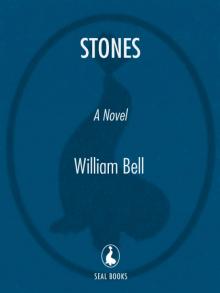 Stones
Stones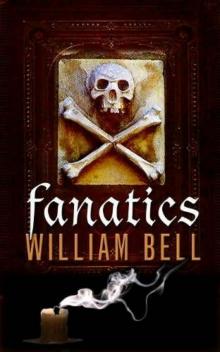 Fanatics
Fanatics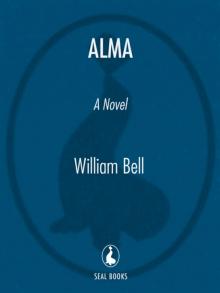 Alma
Alma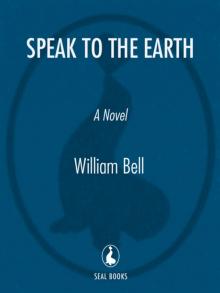 Speak to the Earth
Speak to the Earth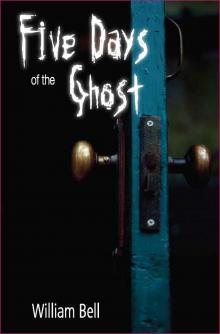 Five Days of the Ghost
Five Days of the Ghost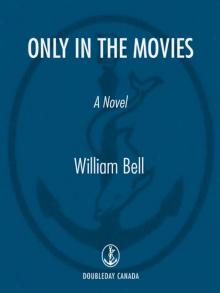 Only in the Movies
Only in the Movies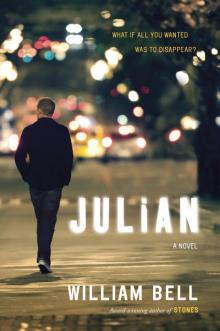 Julian
Julian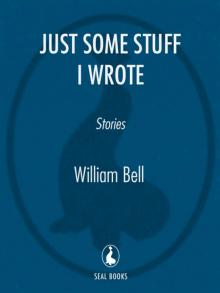 Just Some Stuff I Wrote
Just Some Stuff I Wrote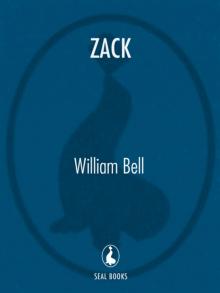 Zack
Zack Forbidden City
Forbidden City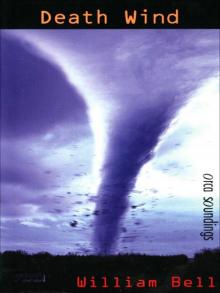 Death Wind
Death Wind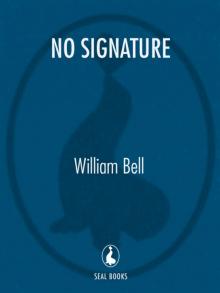 No Signature
No Signature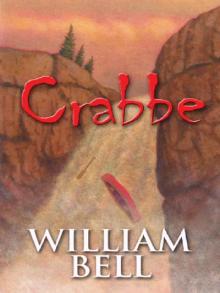 Crabbe
Crabbe